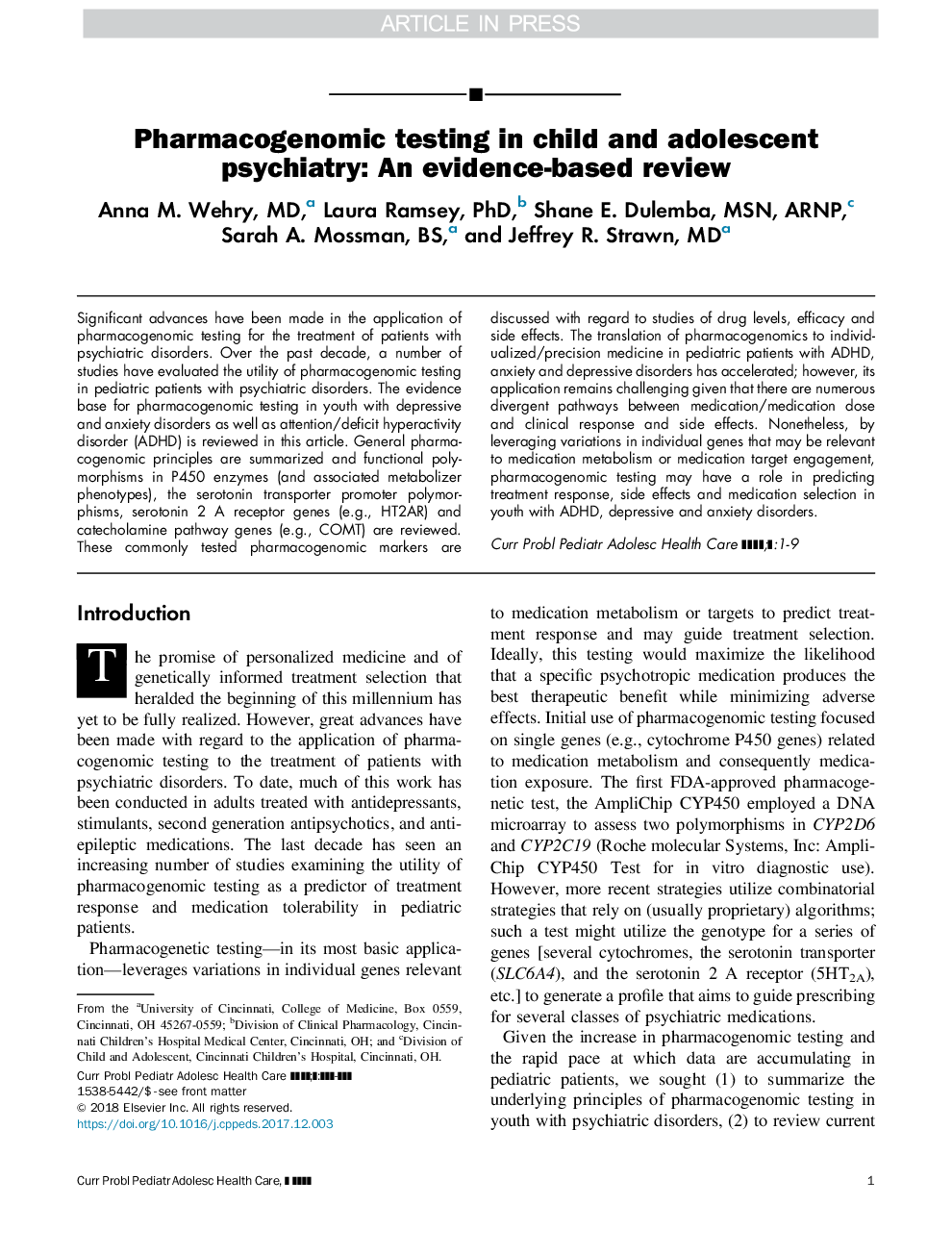ترجمه فارسی عنوان مقاله
تست فارماکولوژیک در روانپزشکی کودکان و نوجوانان: یک بررس ی مبتنی بر شواهد
عنوان انگلیسی
Pharmacogenomic Testing in Child and Adolescent Psychiatry: An Evidence-Based Review
| کد مقاله | سال انتشار | تعداد صفحات مقاله انگلیسی |
|---|---|---|
| 157117 | 2018 | 9 صفحه PDF |
منبع

Publisher : Elsevier - Science Direct (الزویر - ساینس دایرکت)
Journal : Current Problems in Pediatric and Adolescent Health Care, Volume 48, Issue 2, February 2018, Pages 40-49

